
President Grant Cornwell discussed COVID-19 violations, #BlackLivesMatter (BLM), and the financial state of the college in an interview with WPRK last week.
Consequences for students who violate COVID-19 policies is a topic on the minds of many students, and Cornwell’s interview sought to clarify how violations will be treated. He began by assuring the campus that the college is being held accountable for keeping students safe.
Cornwell said, “The college has decided that we have to take a very strong stance on what we do for people who violate these policies.”
Cornwell believes that students are “natural and comfortable” wearing masks, and he is optimistic that students will navigate the semester successfully. He then cited how Fraternity and Sorority Life canceled large social gatherings as an example of social responsibility.
“I don’t want to focus on the violations as much,” Cornewell said. “Students have signed up, and they’re happy to be back.”
On top of ensuring student and campus responsibility, Cornwell discussed what the campus has already done to lower COVID-19 infections: adopting a single occupancy model with one student per dorm room, staggering move-in dates at the beginning of the semester, requiring students to go through “rigorous protocols” before they are given keys to their rooms, erecting outdoor tent classrooms, and implementing a comprehensive testing protocol.
Students expressed concerns that the pandemic has made Rollins less diverse. Cornwell dismissed this worry, citing that Rollins currently has its highest percentage of Black enrolled students in Rollins history.
This number sits at seven percent.
“Black students and Black families are seeing Rollins as a place where they can thrive,” Cornwell said.
He continued with a discussion of what Rollins is doing to expand on its goals and plans for racial justice on campus: “[The Center for Inclusion and Campus Involvement] launched a learning group effort, and faculty and staff have been meeting regularly,” he said. “This is learning taking place outside of the curriculum, and there are courses, too.”
Walk of Fame stones representing people who supported the Confederacy and pro-slavery have been removed from display. Cornwell has also openly supported the #BlackLivesMatter (BLM) movement on campus.
“The BLM movement is the most important social movement since the Civil Rights movement, and I encourage [students] to be involved,” Cornwell said.
He then emphasized the importance of engaging with the community beyond Rollins and voting.
“I don’t try to convince students how to vote,” he said, “but I ask them to assess candidates rigorously.”
When asked about Rollins’ financial situation, Cornwell said that “we did not see the attrition we thought we would have.” He deemed Rollins’ financial outlook as “bright, but there may be turbulence. If we’re able to keep this all in check, our balance sheet is very strong.”
Much of campus funds have been going toward construction projects, the most ambitious of which, the Lakeside Residence Hall, has not been finished. It will hold 503 students by its completion in Spring 2021.
Students who were expecting to reside in Lakeside this semester have been moved to the Alfond Inn. Any planned projects for the Alfond Inn will not go forward until the tourism market returns.
Cornwell said that his ultimate hope for Rollins is that “we deliver on our mission and engage students fully. We can’t accept a year that is not fully engaging for our students. The work over the last six months from faculty and staff is unbelievable, and we’re ready to give it a go.”


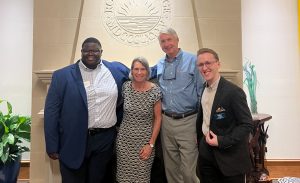








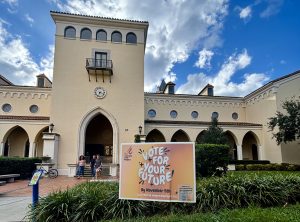

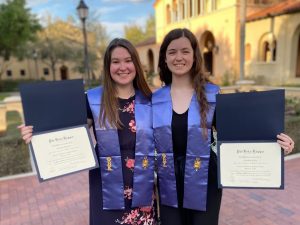
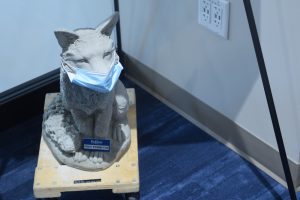
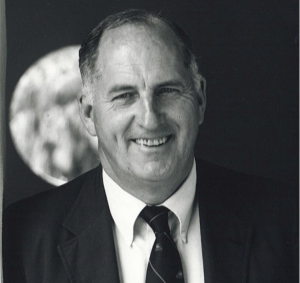
Comments are closed.